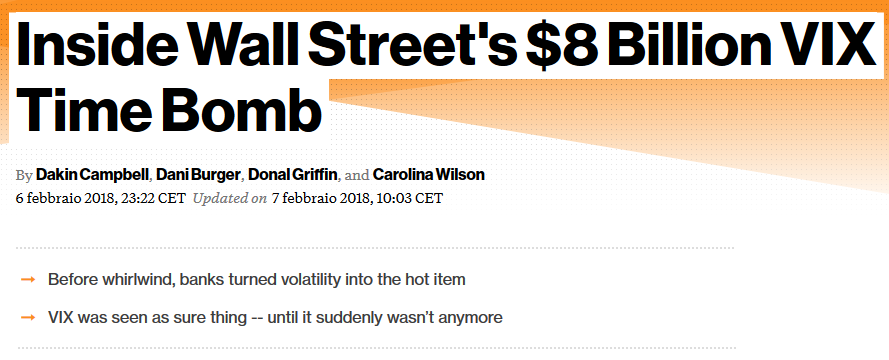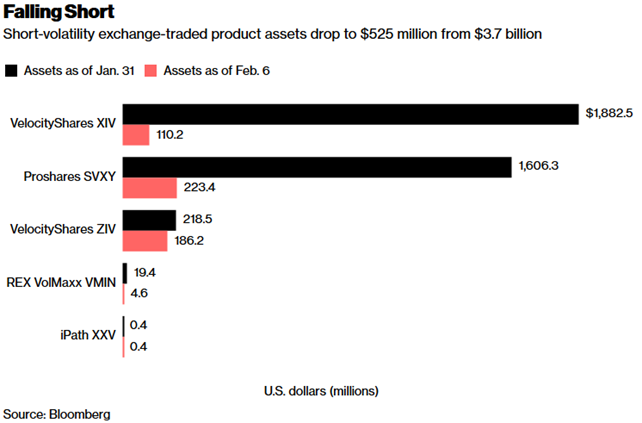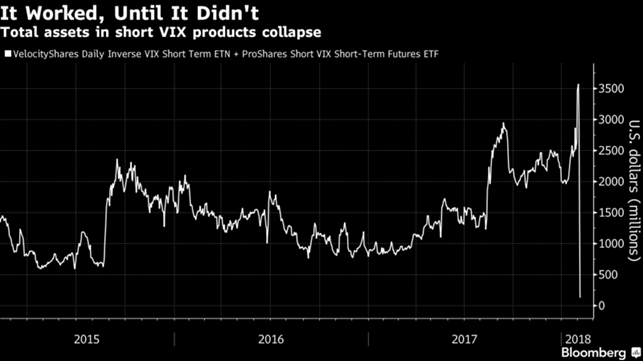Un vero diluvio: di distinzioni, di mani avanti, di "non saprei". Si è scatenata l'intera industria dei media, impegnatissima a spendere la parola "correzione" sullo spunto dei recenti cali degli indici di Borsa.
Noi abbiamo evitato di aggiungere troppe parole a questo diluvio di commenti. Ma è opportuno puntualizzare.
Solo un investitore molto, molto ingenuo potrebbe credere che i fatti delle ultime settimane sono semplicemente una "correzione" di Borsa.
Banca Pictet, ad esempio, stamattina dice che c'è stato un "cambiamento di regime". In primo luogo, si tratta di un cambiamento di psicologia: investitori individuali ma pure molti investitori istituzionali nel 2017 si sono convinti di vivere in un film di favole, come "La-La land": ed infatti si sono registrati nel 2017 una serie di record, tra i quali spicca "il più lungo periodo di sempre senza un ribasso del 5%" per l'indice della Borsa USA. A mente fredda, sembra impossibile che una ampia fetta di investitori sia stata così ingenua, ma i fenomeni di auto-convincimento sono più forti proprio quando si accompagnano con un effetto-gregge. Si crede quello che si VUOLE credere.
Selezionando nel diluvio dei commenti, noi oggi proponiamo in estrema sintesi solo qualche frase, che ci è sembrata particolarmente azzeccata ed efficace. Tutto ciò che è rilevante, ci pare si possa trovarlo nelle poche frasi che seguono, che quindi descrivono ciò che dovremo affrontare insieme nelle prossime settimane e mesi:
- “Last year was really an aberration and not a normal year. We got accustomed to it, no doubt, but then La La Land is generally a comfortable place,”
- “I was talking to somebody today who said, ‘why are the markets acting so abnormal?’ My response for the first time in a long time was that the markets are acting a bit normal,”
- “We’re moving through a type of sound barrier. On the way down, there was some instability as investors had to reposition their portfolios in the zero interest rate world. What’s occurring now through the leadership of the Fed is higher rates will meaningfully disrupt asset allocations,”
- “The lack of fundamental value in either bonds or stocks is the greatest risk. All markets must eventually come back to attractive value and this is a very, very long way down for both stocks and bonds. The broad economy and corporate profitability are both strong, and that’s important, but value is what provides the best support and it’s nowhere to be seen.”
- (...) the brunt of complaints over easy monetary policy have mostly come from fixed-income investors, who have complained that negative to low interest rates brought about by the use of quantitative easing have crowded out private investors, pushing them to the riskiest corners of the bond market in pursuit of incrementally higher returns. In the backdrop of QE, yield-hungry investors snapped up dicey debt in emerging markets as far as Turkmenistan, while money managers have shown a renewed thirst for bundled securities like collateralized debt obligations, which tend to offer higher yields than their plain vanilla constituents but served as ground zero for the 2008 global financial crisis






